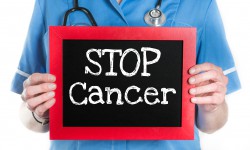
Cancer is the #2 cause of death in the United States. Untold amounts of time and money have been spent researching treatments, such as the non-toxic protocols used at our immuno-oncology center. But is the fight against cancer going in the right direction? Four experts recently spoke with BBC News about ways to improve the approach toward cancer research.
1. Relax government regulation
Dr. Vincent DeVita, instrumental in discovering the cure for Hodgkin’s disease, points to restrictive rules enforced by the Food and Drug Administration. He says it took three years for his team to develop their program, but today’s gauntlet of hurdles would stretch that time to 15 years.
2. Focus on early-stage treatments
According to MIT assistant economics professor Heidi Williams, shorter clinical trials for late-stage treatments result in more funding. Private funding is usually directed toward this research, suggesting that public funding could be allocated more for early-stage treatments studies.
3. Allocate more resources toward prevention
Political and economic considerations make cancer prevention efforts a lower priority, states Dr. Christopher Wild of WHO’s International Agency for Research on Cancer. He estimates that 40 to 50 percent of cancers could be prevented if knowledge was applied to prevention as well as treatments.
4. Educate the public
Professor Pekka Puska led a landmark experiment to reduce heart disease by educating a Finnish community about the dangers of high-risk habits. A similar campaign could be used to inform the public about the connection between cancer and individual behaviors.
Cancer treatments at our Issels® immuno-oncology center are personally tailored to focus on each patient’s particular needs. Contact us for more information.



